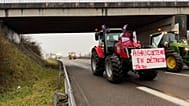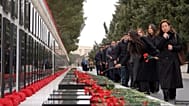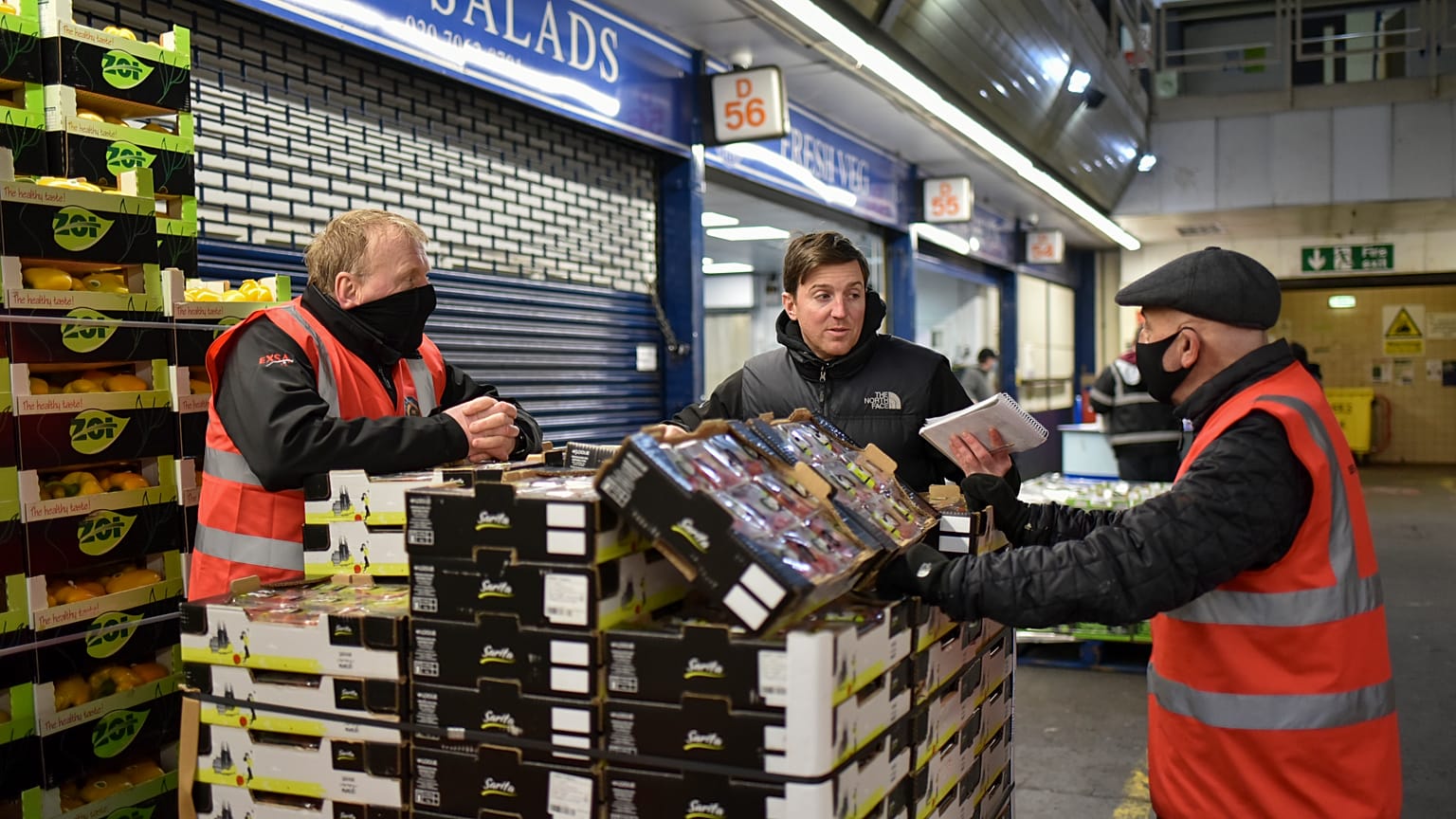Bringing personal animal and dairy products into the EU is no longer allowed following Brexit.
Border officials seized ham sandwiches from lorry drivers coming from the United Kingdom, in a video report filmed by Dutch television.
That's because personal items containing meat, milk or their products are no longer allowed from the UK into the EU post-Brexit.
In the clip from Dutch TV channel NPO 1, a lorry driver appeared surprised by the changes, asking if he could take out the meat but keep the bread from his confiscated ham sandwiches.
"Since Brexit, you're no longer allowed to take certain foods to Europe like meats, fruits, vegetables, fishes, those kinds of stuff," the border guard explains to the lorry driver in the Dutch report.
Later on in the report, the border guard laughs, stating: "welcome to Brexit sir, I'm sorry."
The scene was clipped and posted to Twitter over the weekend, quickly gaining thousands of likes and resurfacing the Dutch report from last week.
It represents one of several changes that came into effect from December 31, 2020, when the UK officially left the bloc.
Guidance from the Department for Environment, Food and Rural Affairs states: "Drivers travelling to the EU should be aware of additional restrictions to personal imports. If you are carrying prohibited items in your luggage, vehicle or person you need to use, consume, or dispose of them at or before the border."
"You cannot bring POAO (products of an animal origin) such as those containing meat or dairy (e.g. a ham and cheese sandwich) into the EU," the department explains.
Dutch border officials posted a photo on Facebook of confiscated foodstuffs, stating: "we confiscated these foodstuffs from motorists in the Hook of Holland ferry terminal. Because from 1 January you cannot just bring more food from the UK with you."
The EU's animal and dairy product restrictions were strengthened "following the 2001 Foot and Mouth Disease epidemic within the EU", the Commission says on personal imports, preventing people from bringing in these products to the bloc.
Social media users commenting on the video clip deplored the change with some saying it was hard to take seriously while others said that it made sense given that when travelling to several other countries, such as Australia or New Zealand, food confiscation is taken seriously at the border.
It comes as export delays are already causing food supply shortages and some industries say they are already facing challenges linked to delays and new paperwork post-Brexit.















